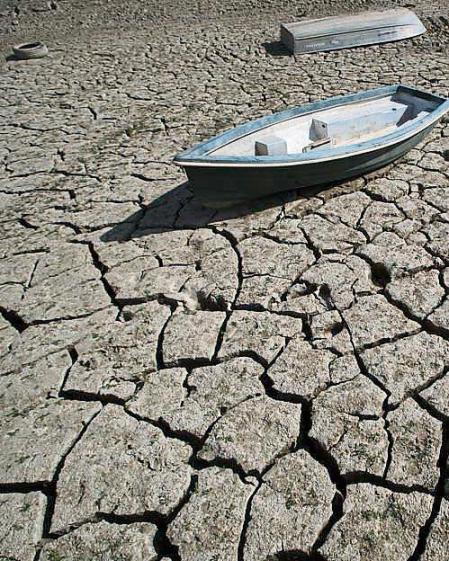Drought has been one of the predominant topics of news and concerns this summer. Droughts, epidemics and wars provoked, until relatively recently, massive religious invocations asking for divine solutions to adversity. Currently, on the other hand, the religious dimension in the face of the drought – as it did very recently in the face of the epidemic and the war – has been practically invisible in the public sphere or, in any case, cornered by the media – in the secret of the heart of each one , the forms of prayer, supplication, opening, can be very diverse. The conviction that the world is governed by physical, chemical and biological laws, and by human ambition, cruelty and stupidity, and that changing it is beyond our reach, leads to disenchantment and fatalism with respect to religion, politics and progress.
However, those of us who are interested in science, politics and religion as areas of human growth and contact with a larger and more plural reality than our own, believe that the religious invocation is still relevant, and that it can be effective. We are not referring, here, to a request for immediate divine intervention in the service of our needs and aspirations. In topics such as droughts and epidemics, so related to the dynamism of nature, this raises interesting theological and ontological reflections on the being of the world, the scope of scientific laws and the action of God, but they are not our objective in this article.
We refer, here, to four other possible dimensions of prayer, related to strength, knowledge, generosity and meaning. Strength, first of all, to resist adversity without magnifying it with more complaints and regrets than are strictly inevitable, and with the greatest possible courage and serenity. Second, deeper and more refined knowledge of nature and the laws that govern it, every aspiring not only to prestige, power and wealth, but also to better serve society.
Solidarity generosity, thirdly, in order to try to share strength, knowledge and resources with those who need it more than us to overcome the difficulties of the moment, which are sometimes so great and so desperate. And, finally, to reflect on the meaning of things, at the various levels of depth of this concept, going beyond our moment, our place and our sufferings and concrete interests, and contemplate and interpret it after all from a broader look.
La Viñuela Reservoir (Málaga)
The absence of prayer is, in a certain way, one of the spiritual and cultural droughts of our days. The insistence on our rights, pleasures and happiness makes us weaker in the face of failure, and intensifies irritation and misunderstanding in the face of adversity. Scientific and technological knowledge experienced as a competitive race and with a purely utilitarian motivation leads to stages of spectacular, but unstable and uncertain material progress. The lack of generosity multiplies inequalities, bitterness and resentment and makes society more dangerous and turbulent. Silencing the question about meaning closes us in a present that does not remember where it comes from or projects where to go or encourages strength.
A prayer that considers God not as our servant, a helpful provider of solutions, answers and assurances, but as a source of hope and certainty, and also a profound company in our questions, illusions and sufferings, continues to be pertinent. It makes us stronger and opens us to a perspective and a vision of reality beyond our limited perspectives; it enlarges us, ultimately, and unites us to fertile forms of spirituality and action.

